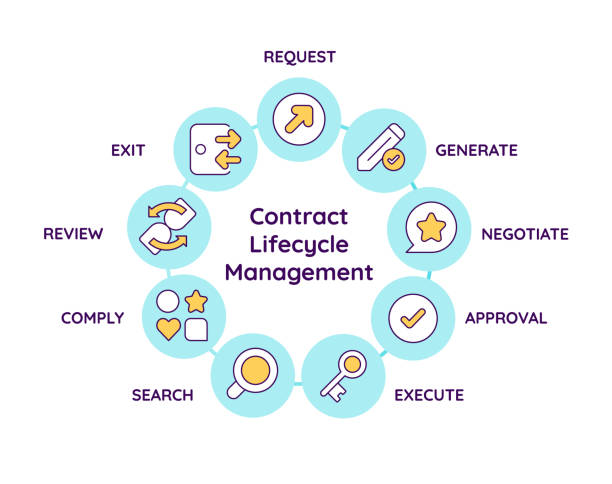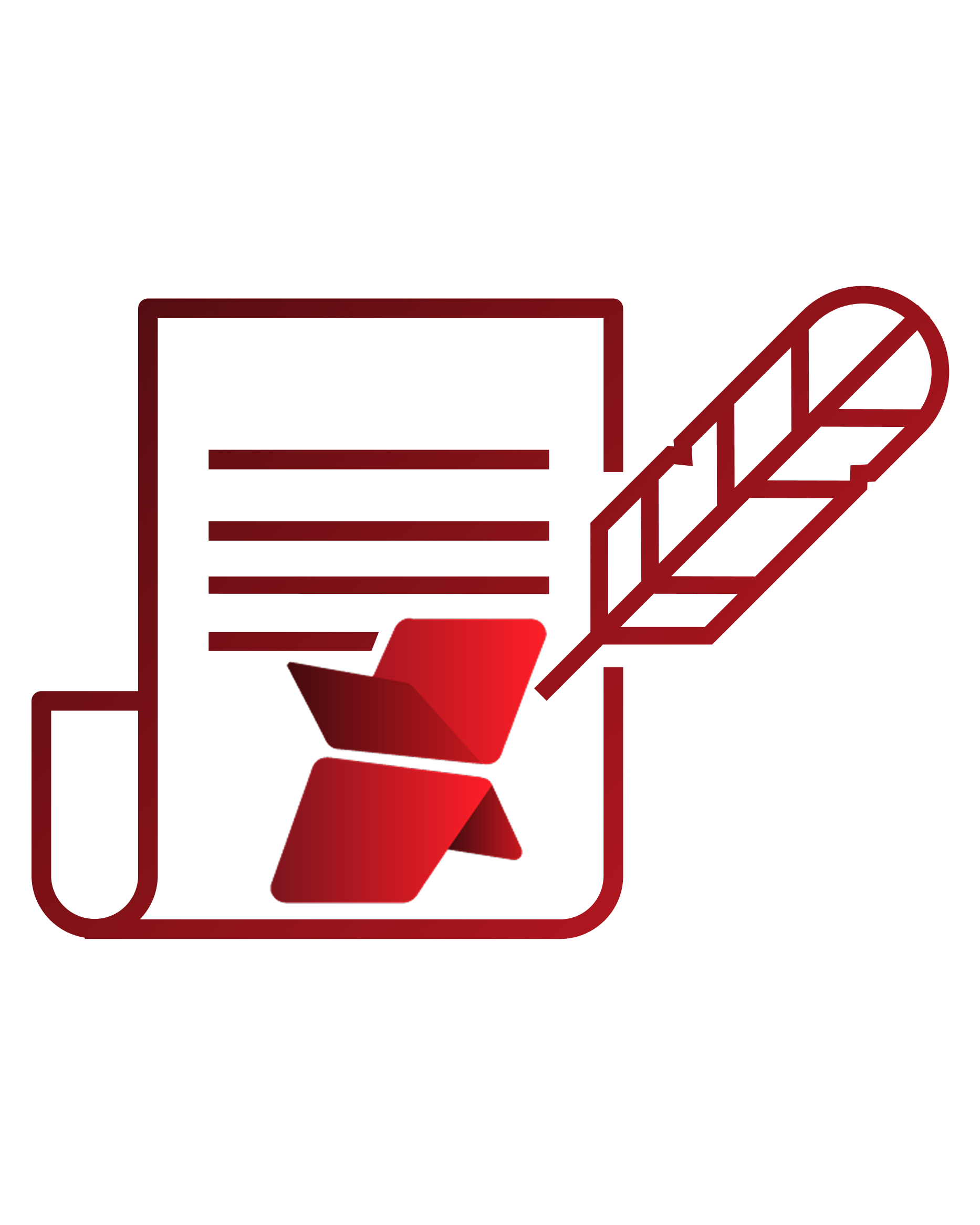Poornima G
As deals flood in, sales teams close agreements at lightning speed, procurement onboards vendors, and legal work hard to keep everything compliant. One common thread tying all these teams together is Contracts. They shape business relationships, define obligations, and ensure compliance across departments.
Imagine contracts missing a name, carrying a mismatched date, being buried in emails, scattered across shared drives, or lost in Salesforce. One small mistake could delay a deal, onboard a vendor with the wrong terms, or create a compliance nightmare.
A streamlined Contract Lifecycle Management (CLM) solution in Salesforce can eliminate these challenges. But how exactly does CLM work, and why should you care? Let’s dive in.
What is Contract Lifecycle Management (CLM) in Salesforce?
Contract Lifecycle Management (CLM) in Salesforce refers to the end-to-end process of managing contracts—from creation and negotiation to approval, execution, renewal, and compliance—within the Salesforce ecosystem.
From the moment a deal is set in motion to the time it’s renewed, contracts pass through multiple stages—drafting, review, approvals, execution, storage, tracking, compliance management, and amendments. Managing these tasks manually is a recipe for delays, missed deadlines, and compliance risks.
With CLM integrated into Salesforce, businesses can automate contract workflows, reduce manual errors, track contract status in real-time, and ensure compliance with organizational policies. Salesforce CLM solutions also enable seamless collaboration between sales, legal, and finance teams, accelerating deal closures and improving visibility into contract data, all while keeping everything centralized within the CRM.
Tools like XfilesPro DocGen streamline these stages by automating workflows, enabling e-signatures, tracking version history, and providing real-time visibility into contract status. These tools integrate tightly with Salesforce objects like Opportunities and Accounts, allowing teams to generate contracts with pre-approved templates, collaborate efficiently, and ensure faster approvals.
XfilesPro DocGen for Document Generation and CLM Process
Stages of the CLM Process in Salesforce
Let’s say your marketing team captured a lead, and the sales team secured a verbal agreement. But before sealing the deal, you and your client need to have a formal contract.

With an intelligent Salesforce Contract Lifecycle Management (CLM) tool, you can digitize and automate every step of the contract process, eliminating manual hassles and reducing risks.
A CLM is designed to streamline and enhance the following stages:
Contract Creation
Imagine you’ve just wrapped up a great meeting with a client. You shake hands (or exchange virtual waves), agreeing on terms. Now, it’s time to put it in writing.
Instead of starting from scratch, a CLM tool lets you select a pre-approved template or customize one to fit your needs. Fields like the client’s name, address, and contract terms auto-populate, saving time and reducing errors. No more copy-pasting or digging through old emails.
Contract Negotiation
Now comes the back-and-forth. Your client’s legal team wants a minor change, and your finance team needs to double-check a clause. Traditionally, this would mean endless email threads with attachments named Final_v7(ReallyFinal).docx.
With CLM, all edits, comments, and version changes are tracked in one place. Teams can collaborate in real time, ensuring transparency and efficiency. It’s like Google Docs but built for contracts.
Contract Approval
Negotiations are done, and now it’s time for approvals. But here’s the problem: multiple departments need to sign off, and chasing approvals through email is a task in itself. Some reviewers aren’t even decision-makers, yet they’re in the loop, delaying the process.
A CLM tool fixes this by assigning clear roles—reviewers can give feedback, but only authorized approvers can finalize the contract. No confusion, no unnecessary delays.
Contract Execution
It’s time to make it official. With e-signatures, contracts can be signed instantly, no printing or scanning is required. What used to take days (or even weeks) is now done in minutes. You hit “Send,” the client signs, and just like that, the contract is legally binding.
Contract Management & Renewal
Months go by, and suddenly, The contract is up for renewal. No digging through old files or missing key updates.
A CLM tool gives you the latest version, lets you make changes, and sends it for renewal in just a few clicks.
Commercial Applications of CLM
Contracts are part of everyday business, but handling them manually is a hassle. With intelligent contract lifecycle management businesses across industries can speed up contract cycles. Here’s how different industries use it.
Financial Services & Banking
- Automates loan agreements, investment contracts, and lease agreements.
- Reduces manual errors and ensures compliance with financial regulations.
- Provides real-time contract visibility for risk assessment.
Healthcare & Life Sciences
- Manages vendor contracts, research agreements, and clinical trial documentation.
- Ensures compliance with HIPAA, GDPR, and other healthcare regulations.
- Automates renewals for pharmaceutical and medical supplier agreements.
Manufacturing & Supply Chain
- Simplifies contracts with distributors, suppliers, and logistics partners.
- Tracks obligations like delivery timelines, SLAs, and penalties.
- Ensures compliance with international trade agreements.
Dutch Logistics Leader Streamlines Salesforce Document Automation with XfilesPro
Real Estate & Property Management
- Streamlines lease agreements, tenant contracts, and property sales.
- Ensures accurate contract drafting with built-in legal clauses.
- Automates rent adjustments and contract renewals.
This holds true for Salesforce CRM too—contract stages remain the same no matter the industry. While CLM solutions can work across different platforms, choosing one that fits seamlessly into Salesforce makes all the difference. It keeps everything in one place, streamlining approvals, automating workflows, and ensuring compliance without the usual back-and-forth.
Limitation Of Salesforce Contract Lifecycle Management
Salesforce integrated with a CLM is a powerful tool, no doubt. But as contracts grow in complexity, so do the challenges. Here’s where it might not keep up with your business needs:
Limited Document Generation Capabilities
Ever tried generating a contract only to realize the template doesn’t support dynamic clauses, complex formatting, or conditional sections? That’s the reality with many CLM tools. They do the basics well, but if you need multi-layered contracts with custom branding and automated content population, you might find yourself stuck in manual edits.
Lack of Advanced Customization
Branding matters. Whether it’s a sales agreement or an NDA, every contract is an extension of your business. However, some CLMs offer restricted design flexibility, meaning you might struggle to make contracts visually compelling. If you want custom headers, footers, logos, or advanced formatting, you’ll need to look elsewhere.
Struggles with External Storage Access
Your sales team works in Salesforce, but contracts don’t live in isolation. Salesforce CLM lacks seamless integration with external storage like SharePoint or Google Drive, forcing users to manually transfer files. This leads to workflow disruptions and version control issues, making contract management outside Salesforce inefficient.
While Salesforce CLM is effective for managing contracts, it often falls short when it comes to handling other business-critical documents like quotes, invoices, or compliance reports. Limitations such as restricted support for custom document types and lack of external storage compatibility can slow down operations and increase costs.
That’s why many teams turn to a more versatile document generation solution within Salesforce. A tool like XfilesPro DocGen empowers users to effortlessly generate, manage, and store a wide range of documents—while maintaining smooth workflows and ensuring secure, seamless integration with external cloud storage platforms.
XfilesPro DocGen: More Than CLM for Salesforce
Not only does the application handle your Contract Lifecycle Management (CLM), but it also manages other essential documents like quotes, reports, proposals, Statements of Work (SoW), invoices, and more. No need for multiple tools—XfilesPro DocGen has everything you need in one place!
- Template Setup – Create standardized, reusable templates for contracts and business documents.
- Dynamic Data Population – Auto-fill contracts with real-time Salesforce data for accuracy and efficiency.
- Review & Approval Workflow – Ensure seamless collaboration with built-in approval processes.
- Real-Time Versioning – Track document changes and maintain version control effortlessly.
- E-sign Integration – Securely sign and finalize contracts without leaving Salesforce.
FAQs
CLM in Salesforce is the process of creating, negotiating, approving, executing, storing, and renewing contracts within the Salesforce ecosystem.
Contract management software streamlines workflows improves collaboration, speeds up contract cycles, and integrates seamlessly with platforms like Salesforce.
It’s simple! Just follow these steps:
Download the application from AppExchange.
Setup templates for contracts and other documents.
Add objects and related fields from Salesforce to auto-fill data.
Assign reviewers and approvers as needed.
Collect e-signatures seamlessly.
Click ‘Generate’—your document is ready!



